On the eve of a too-close-to-call presidential election, Ecuador declared a state of emergency Saturday in seven of its 24 provinces, including capital Quito, saying it was needed to fight a dramatic rise in drug-linked violence.
The measure, set to last 60 days, took effect just before Sunday's election pitting incumbent Daniel Noboa against his leftist opponent Luisa González, and after the country began the year with its bloodiest start ever, averaging a killing every hour.
The state of emergency applies to the coastal provinces of Guayas, Los Ríos, Manabí, Santa Elena and El Oro, the Amazonian provinces of Orellana and Sucumbios, as well as to Quito and the troubled mining town of Camilo Ponce Enríquez.
It also applies to the nation's prisons.
Noboa imposed the measure amid an "increase in violence, serious crime, and the intense unlawful activities of organised armed groups," according to a decree he signed.
The order suspends the legal protection against unauthorised search and entry of homes and mail, as well as the freedom of assembly, and imposes a nightly curfew in the cities of Guayas, Los Rios, Orellana and Sucumbios, as well as Ponce Enríquez.
Noboa, 37, is the mega-rich scion of a billion-dollar banana empire, while González, a single mother and lawyer 10 years his elder, recalls running around shoeless while growing up in humble surroundings.
The incumbent, in power since November 2023, has previously decreed states of emergency to combat the rise of drug gangs, who have waged bloody turf fights over control of the illicit trade, spreading terror among ordinary Ecuadoreans.
As Noboa pursued his "iron fist" policies, the country's homicide rate fell from a record 47 per 100,000 inhabitants in 2023 to 38 in 2024, yet remained the highest in Latin America last year, according to the group Insight Crime.
The president last year declared Ecuador to be in an internal armed conflict, allowing him to keep troops in the streets to combat some 20 drug gangs linked to international cartels the president brands as "terrorists."
It was not immediately clear how the election-eve emergency measures would affect the voting process Sunday, or voters' decisions.
But crime has been a key issue between Noboa, 37, and his 47-year-old rival Gonzalez, as close to 14 million Ecuadoreans prepare to decide who will run their nation for the next four years.
"There is no work and insecurity is on the rise" said 29-year-old mum Adela in Guayaquil, who did not want to give her full name. "They always make promises, but when they are elected, they never fulfil them."
'Iron fist' or sharp shift?
A Noboa victory would likely spell more "iron fist" policies, which have had mixed success.
Ecuador suffered one murder an hour in January and February, the bloodiest start to a year on record.
Noboa wants to see US troops deploy to Ecuador to tackle the cartels wrestling to control the flow of cocaine through Ecuadorean ports to Asia, the United States and Europe.
A win by González, who hopes to be Ecuador's first female president, would signal a sharp shift to the left and a likely cooling of Ecuador's relations with the United States and its president, Donald Trump.
González is closely allied with ex-president Rafael Correa, who delighted in lobbing barbs at Washington during his decade in office.
He now lives in exile in Belgium, avoiding a corruption conviction he claims is politically motivated. He remains a deeply polarising figure in his homeland.
Ecuadoreans appear equally divided over which political path they now want to choose.
In February's first round of voting less than a percentage point, or 17,000 votes, separated Noboa and González.
On Sunday, with more than a dozen also-ran candidates shorn from the ballot, hundreds of thousands of votes are up for grabs.
'Violence, poverty, unemployment'
González has won the backing of powerful indigenous leader Leonidas Iza, who won half a million votes in the first round. But it is unclear if his voters will remain united.
The polls, which have proved less than reliable in the past, show the second round as a virtual tie.
Both candidates on Thursday held final campaign events in Guayaquil, the country's largest city, economic capital and the epicentre of drug violence.
González made a late play for women voters, proposing low-interest loans of up to US$40,000 for single mothers like herself.
During Noboa's time in power, she said, "violence, poverty and unemployment has hit us women hardest."
Despite holding the Presidency and coming from one of the country's richest families, Noboa presented himself as an outsider and the candidate of change.
"The country does not deserve to be mistreated by the same old politicians," he said, targeting his rival's ties with former president Correa.
Some analysts fear a tight result could spark claims of fraud and lead to a government with a weak mandate.
"If the difference is very small, the government will be born with a problem: It has almost half the country against it, and that weighs heavily, making it more difficult to govern," said Simón Pachano of UN-backed social sciences institute FLASCO.
– TIMES/AFP










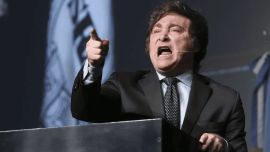

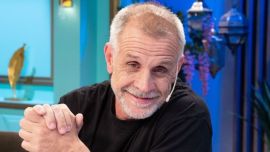





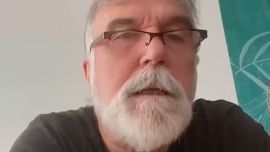
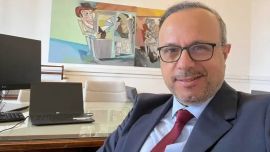

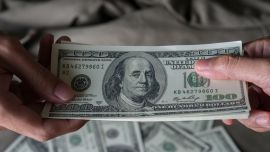
Comments